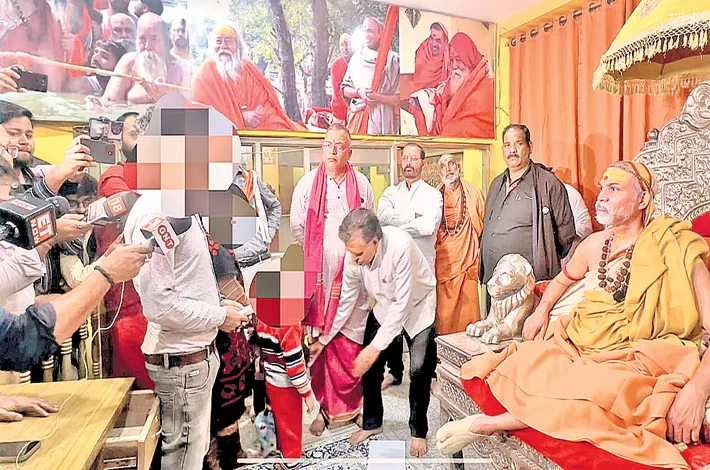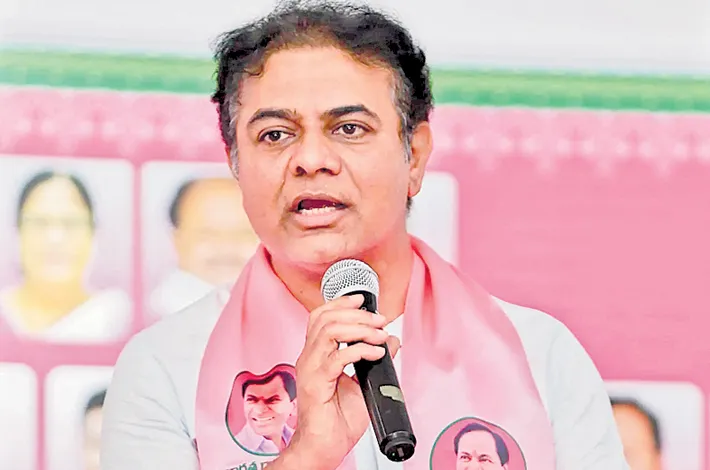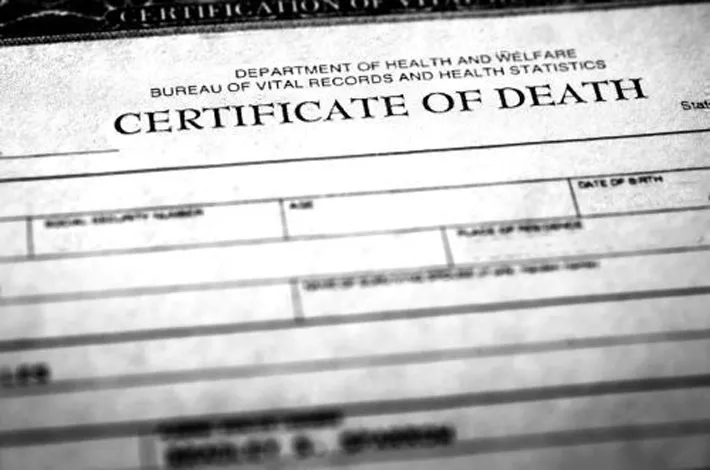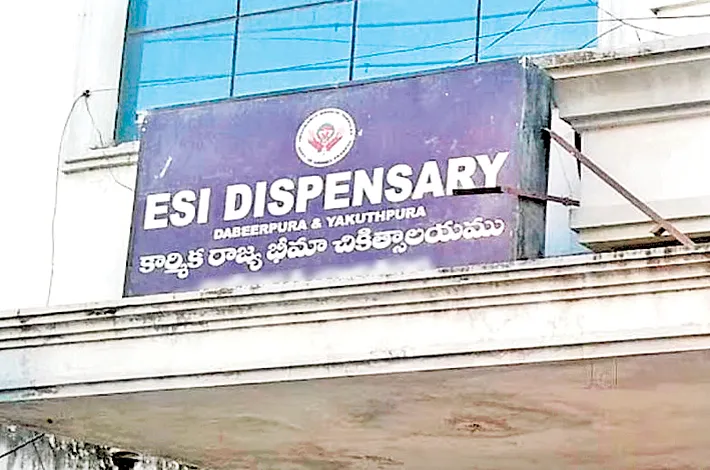SC’s Lightning-Fast Verdict Clears ambani’s Vantara Zoo
16-09-2025 12:00:00 AM
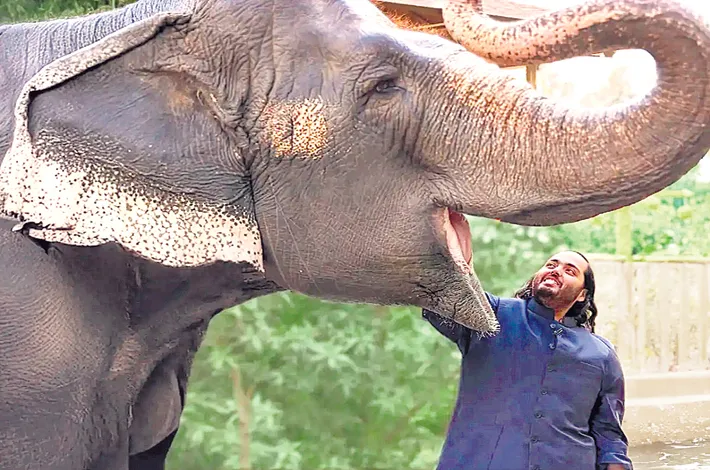
vjm divakar I hyderabad
In what considered to be the speediest justice, the Supreme Court has delivered a significant verdict exonerating Vantara, the sprawling 3,500-acre wildlife rescue and rehabilitation center in Jamnagar, Gujarat, spearheaded by Anant Ambani, son of Reliance Industries chairman Mukesh Ambani. The decision, based on a Special Investigation Team (SIT) report, dismisses allegations of illegal animal acquisitions, mistreatment, and regulatory violations that had cast a shadow over the facility since its launch in February 2024. The ruling today thus brings closure to a contentious saga that sparked protests, public interest litigations (PILs), and global scrutiny, while reigniting debates about private conservation efforts in India.
The Rise of Vantara
Vantara, branded as the world’s largest private wildlife rehabilitation center, houses over 2,000 animals, including 200 elephants, 300 big cats (tigers, leopards, and lions), 900 crocodiles, and a diverse array of reptiles, birds, and endangered species. Backed by the Reliance Foundation, the facility boasts state-of-the-art infrastructure, including elephant hospitals, ICUs, and research centers, aimed at rescuing and rehabilitating abused or injured animals from India and abroad. Its high-profile unveiling coincided with Anant Ambani’s pre-wedding celebrations in March 2024, attended by global elites like Ivanka Trump, Mark Zuckerberg, and Bill Gates, who toured the facility. The glitzy event drew early criticism, with activists accusing Vantara of prioritizing prestige over animal welfare.
Allegations and Public Outcry
Vantara’s operations soon came under fire. Wildlife NGOs, including Wildlife SOS and the Wildlife Animal Protection Forum of South Africa, raised alarms over alleged violations of India’s Wildlife Protection Act, 1972, and the Convention on International Trade in Endangered Species (CITES). Key accusations included:
Illegal Animal Transfers:
Activists claimed elephants and Schedule I species (highly protected under Indian law) were transferred from temples, state zoos (e.g., Assam State Zoo and Sakkarbaug Zoo), and conflict zones in Maharashtra, Arunachal Pradesh, and Kolhapur without mandatory clearances from the Chief Wildlife Warden or Central Zoo Authority (CZA). International imports, including crocodiles from Mexico, parrots from Germany, and endangered African species via South Africa’s Fauna Zoo and India’s Madras Crocodile Bank Trust, were flagged for potential CITES breaches.
Animal Welfare Concerns
Reports highlighted stress caused by celebrity photo-ops during the pre-wedding event, inadequate rehabilitation plans (with no clear strategy for releasing animals into the wild), and environmental risks due to Vantara’s proximity to Reliance’s massive Jamnagar oil refinery in the so-called “Green Belt” area.
Regulatory and Financial Irregularities:
Critics alleged Vantara lacked CZA recognition under Section 38H as of October 2022, raising questions about its legal status as a zoo. Additional concerns included potential money laundering through animal trades, misuse of carbon credits, and excessive water consumption, prompting protests in Kolhapur in August 2025, where thousands demanded the return of local elephants. The controversy escalated when multiple PILs were filed in the Supreme Court, urging a probe into Vantara’s operations and the CZA’s oversight failures.
Supreme Court Intervention and SIT Probe
On August 25, the Supreme Court, hearing the PILs, acknowledged the “serious but unverified” nature of the allegations. A bench led by Chief Justice DY Chandrachud emphasized the need for an impartial investigation, noting that “wildlife conservation cannot be compromised by influence or oversight lapses.” The court constituted a Special Investigation Team headed by retired Justice Jasti Chelameswar with a mandate to examine:
1. Legality of animal acquisitions, particularly elephants and CITES-listed species.
2. Compliance with the Wildlife Protection Act and CZA regulations.
3. Animal welfare standards, including veterinary care and habitat conditions.
4. Allegations of financial misconduct, such as smuggling or money laundering.
5. Environmental impact, including pollution risks from the nearby refinery.
The SIT, comprising wildlife experts, CZA officials, and forensic auditors, conducted a three-week investigation, reviewing transfer documents, veterinary records, and import permits, and inspecting Vantara’s facilities. Vantara’s management, led by Anant Ambani, pledged full cooperation, issuing a statement on August 28, 2025: “We are committed to transparency and the highest standards of animal care. Vantara exists to protect and rehabilitate, not exploit.”
SIT Findings and Supreme Court Ruling
On September 10, 2025, the SIT submitted its report, delivering a clean chit to Vantara. Key findings included:
Legal Acquisitions:
All animal transfers, including 47 elephants from India and 12 from international sources, were supported by valid CZA approvals and CITES permits. Transfers from Assam and Sakkarbaug zoos followed exchange protocols, with documentation completed post facto in some cases due to administrative delays, not willful violations.
Welfare Standards:
Veterinary records showed “exemplary care,” with elephants receiving specialized diets and medical treatment. The SIT found no evidence of stress from visitor interactions, noting strict protocols during high-profile events. However, it recommended developing a wild-release framework for non-endangered species.
Regulatory Compliance:
Vantara secured CZA recognition in March 2024, addressing earlier lapses. The facility’s proximity to the refinery posed no measurable pollution risk, with air and water quality within permissible limits.
Financial Transparency:
No evidence of money laundering or misuse of resources was found. Carbon credit claims were unrelated to Vantara’s operations, and water usage aligned with state regulations.
The Supreme Court, in its September 12 ruling, accepted the SIT’s findings, dismissing the PILs. Chief Justice Chandrachud observed, “The allegations, while serious, lack substantiation. Vantara’s operations align with legal and ethical standards, though we urge ongoing vigilance by the CZA.” The court commended the facility’s rehabilitation efforts but echoed the SIT’s call for a clearer rewilding strategy.
Public Reaction and Ongoing Debate
The verdict has polarized opinions. Vantara’s supporters, including Reliance Foundation, hailed it as a validation of their conservation mission. Anant Ambani stated, “Vantara is a labor of love for India’s wildlife. This ruling strengthens our resolve to protect vulnerable species.” However, activists remain skeptical, with some taking to social media platforms like X to label the probe a “greenwashing sham” influenced by the Ambanis’ clout. A Wildlife SOS spokesperson remarked, “The SIT’s speed raises questions. Private zoos must prioritize release over lifelong captivity.”
The Kolhapur protests have subsided, but local groups vow to monitor Vantara’s elephant care. Internationally, South African NGOs expressed disappointment, urging stricter CITES enforcement. Posts on X reflect ongoing distrust, with users questioning the SIT’s impartiality and citing the Ambani family’s influence in Indian politics and business.
Looking Ahead
The Supreme Court’s ruling allows Vantara to continue operations without legal impediments, bolstering its global profile as a conservation hub. However, the controversy underscores broader ethical questions about private zoos and the balance between rescue, rehabilitation, and rewilding. As Vantara expands—plans include a public education wing by 2026—the facility will likely remain under scrutiny from activists and regulators alike. For now, Anant Ambani’s vision of a wildlife sanctuary stands vindicated, but the debate over its long-term impact on India’s conservation landscape is far from settled.





